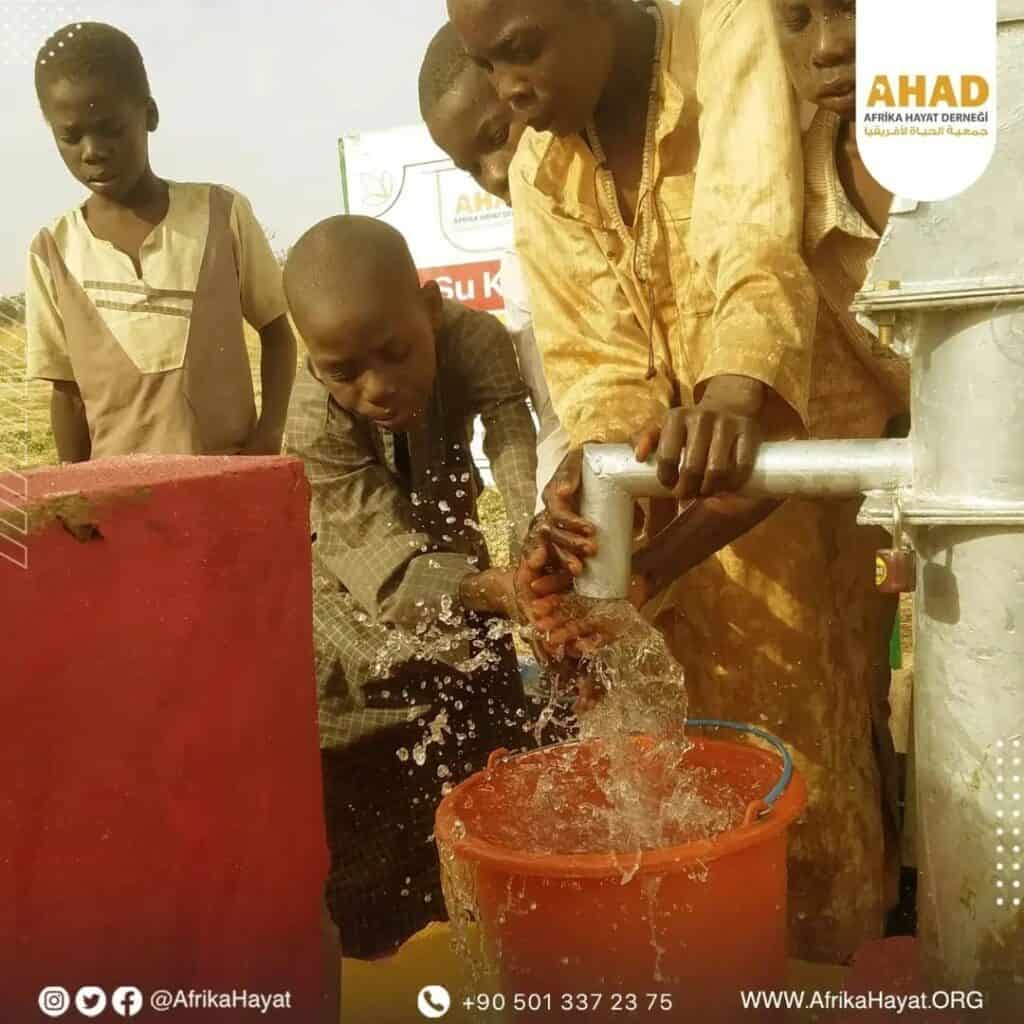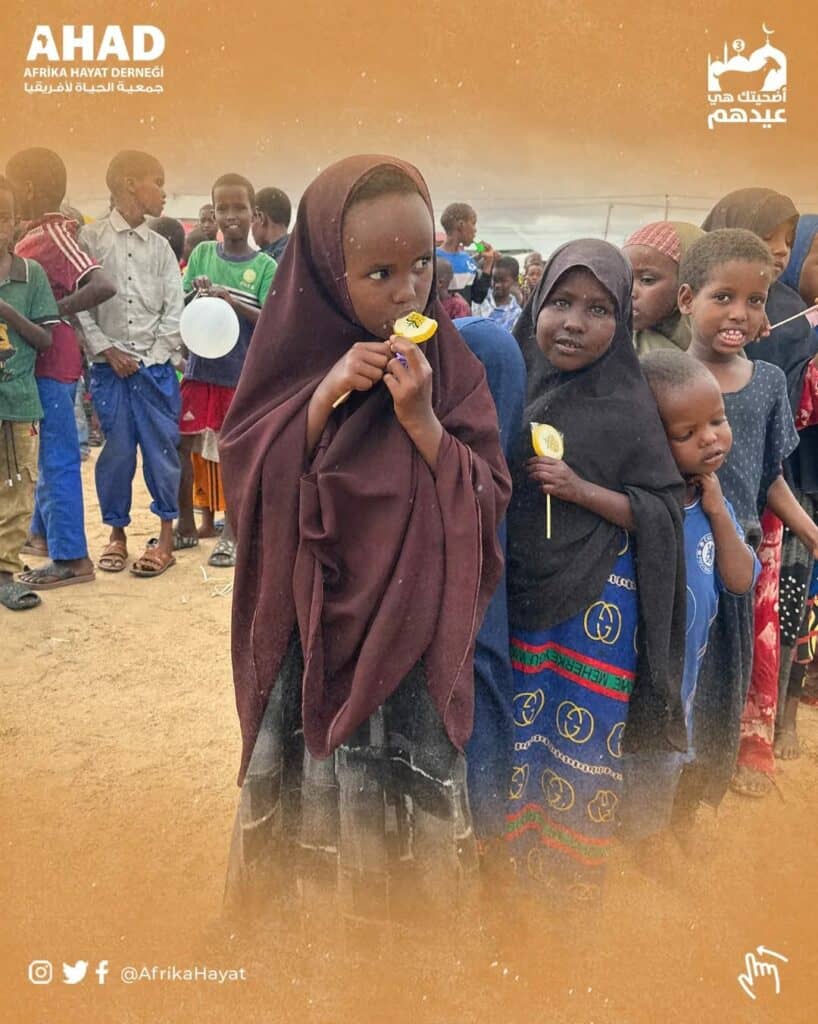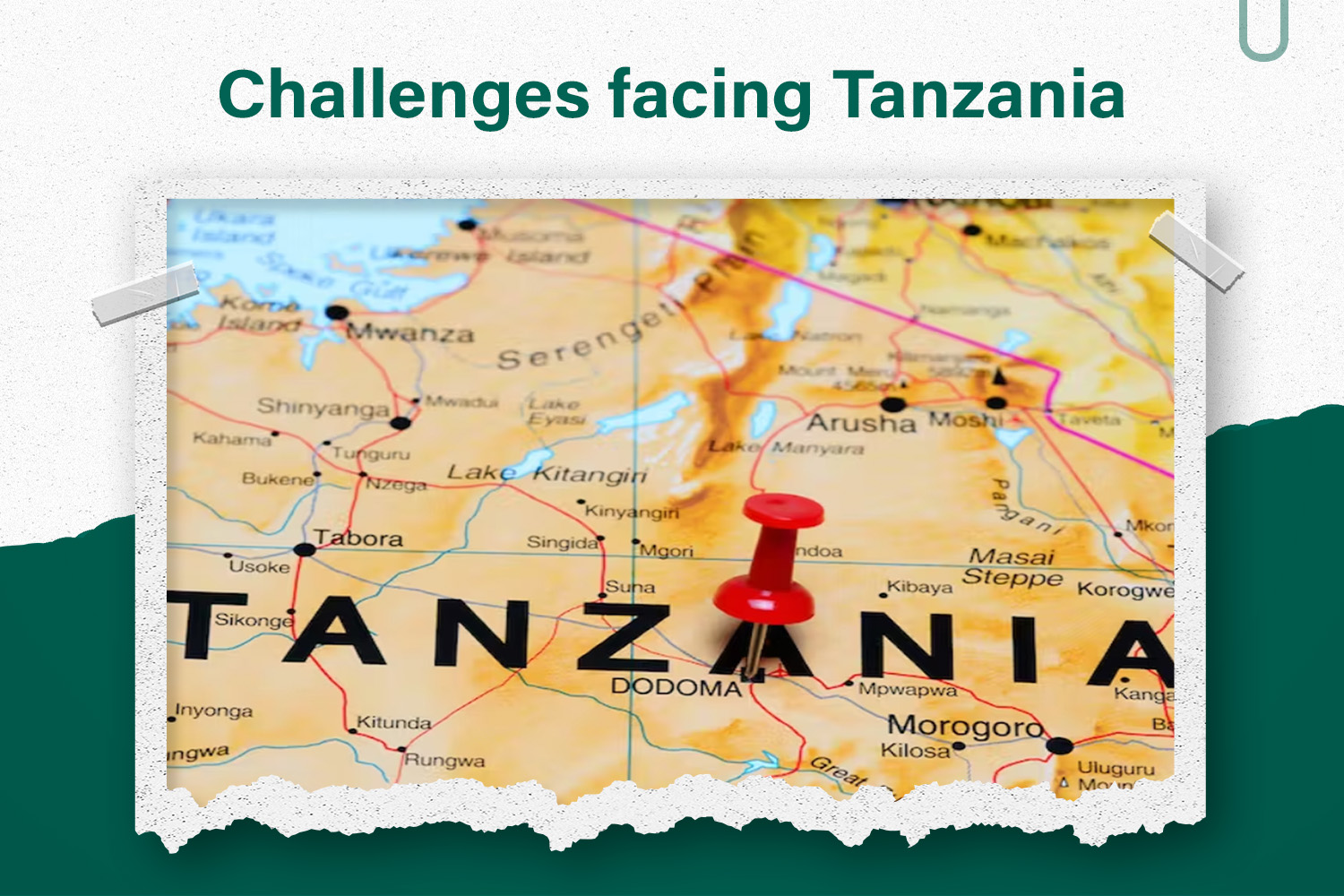Tanzania is considered one of the most promising countries in East Africa in terms of economy, culture and tourism. However, development in Tanzania faces important challenges. In this article, we will discuss the challenges facing Tanzania and the importance of its position in facing these challenges.
The location and the importance of Challenges facing Tanzania
Tanzania is a country that faces great challenges in working towards sustainable development and achieving economic and social stability. It is bordered by challenges such as poverty, ignorance, lack of funding and environmental imbalances. Overcoming these challenges requires a joint effort of the government, companies and civil society.
A summary of the challenges that will be addressed in the article
There are a number of challenges facing Tanzania and they will be discussed in this article. We will highlight economic challenges such as unemployment and lack of funding, social challenges such as poverty and ignorance, and environmental challenges such as water pollution and Wildlife degradation. Also the current efforts of the government and organizations to overcome these challenges and achieve sustainable development in Tanzania.
Economic challenges
The impact of unemployment on the local economy
Unemployment is one of the most prominent economic challenges facing Tanzania. High unemployment negatively affects the economic growth and sustainable development of the country. High unemployment means that there are a large number of youth and underutilized working competencies, which leads to a waste of human resources and undermines opportunities for economic growth and prosperity. Therefore, it is necessary to take effective measures to promote employment opportunities, develop skills and promote entrepreneurship to contribute to sustainable economic growth in Tanzania.
Infrastructure development and improved access to basic services
Tanzania is facing major challenges in infrastructure development and improving access to basic services such as electricity, water and transportation. The deteriorating infrastructure hinders production and trade processes and reduces opportunities for economic growth. Therefore, the necessary investments should be made to improve infrastructure, including roads, bridges, airports, ports and communication networks. Partnerships with the private sector should also be strengthened to speed up development processes and provide better services to the community.
Social challenges
Poverty and related social challenges
Tanzania suffers from the problem of poverty and the social challenges associated with it. Poverty negatively affects the life of the population and exposes them to many difficulties and sufferings. This includes difficulties in obtaining adequate food, decent shelter, health care and education. The chances of young people to get good jobs are decreasing due to the lack of available jobs and the lack of skills required in the labor market. Therefore, it is necessary to take measures to reduce poverty, provide jobs for young people and improve the living conditions of individuals in society.

Challenges facing Tanzania
Education, health care and improving the quality of life
Tanzania faces challenges in the field of education, health care and improving the quality of life of citizens. Many have difficulties with getting a quality education and equal opportunities to learn. It also faces challenges in providing quality health care to all, especially in remote and poor areas. The necessary resources should be made available to improve the education and health care system and provide equal opportunities and services to all citizens to improve the quality of life and promote sustainable development in Tanzania.
Environmental challenges
Preserving natural resources and combating climate change
Tanzania is facing important environmental challenges that require action to conserve natural resources and combat climate change. One of the most important of these challenges is forest degradation, desertification and desertification. Forests are a major vital source of clean air, water and food, but they are being degraded by illegal timber trade and destruction by human activity. Desertification and desertification affect the quality of soils, crops and Water Resources.
To address these challenges, forest protection must be strengthened, tree planting encouraged, desertification addressed and sustainable agricultural practices used. In addition, Tanzania should take strong measures to reduce greenhouse gas emissions and cooperate with the international community to combat climate change.
Lack of water
Tanzania is facing another challenge related to water shortage. In many regions of the country, the population has difficulty with access to clean water, drinking and agricultural use. Tanzania needs to develop infrastructure to provide clean water and promote awareness of the importance of sustainable water use.

Challenges facing Tanzania
Internally, measures such as desalination of salt water, collection of deficient water and optimization of the use of existing water can be taken. In addition, cooperation between Tanzania and neighboring countries should be strengthened to effectively manage shared Water Resources.
Tanzania is facing significant environmental challenges, and the government, the local community and environmental organizations are working to implement strategies to address these challenges and preserve a sustainable and healthy environment for current and future generations.
Political challenges
Improving governance and fighting corruption
Tanzania is facing political challenges in improving governance and fighting corruption. The country needs to promote transparency and strengthen accountability to achieve sustainable development. The government and relevant institutions should adopt effective policies and mechanisms to address corruption and achieve social and economic justice for citizens.
Peace, security and political balance
Political stability and sustainable security are other challenges facing Tanzania. The government should work to strengthen national security and achieve political balance to ensure the stability of the country and attract foreign investment. Tanzania should cooperate with neighboring countries and the international community to combat common security challenges and promote peace and stability in the region.
Tanzania’s policy challenges focus on improving governance, fighting corruption, promoting peace and security, and achieving political balance. Government, local and international community must cooperate to address these challenges and build a better future for the country.

Challenges facing Tanzania
Cultural challenges
Preservation of cultural heritage and diversity
Tanzania faces challenges in preserving cultural heritage and diversity. The cultural diversity of Tanzania contains a wide range of different cultures, traditions and languages. The government and relevant institutions should work to protect and promote this cultural diversity and preserve the national cultural heritage. This can be achieved through the development of programs and projects to preserve historical and heritage sites and promote awareness about them.
Promoting community participation and multiculturalism
Tanzania is a multicultural environment, and the government should work to promote community participation and promote the peaceful coexistence of different cultures. Dialogue, understanding and mutual respect between different communities should be promoted and participation in joint cultural activities encouraged. By creating opportunities for learning and interaction between different cultures, bridges of communication and cultural understanding can be built in the country.
Legal challenges
Promotion of human rights and social justice
Tanzania faces many challenges with regard to the promotion of human rights and social justice. The government and the relevant institutions should work to promote and protect the human rights of all members of society. This requires ensuring equal opportunities and equal access to basic services such as education, health and housing. Social justice should also be promoted and aid and support should be provided to vulnerable and marginalized groups in society.
Contributions of the AHAD society in Tanzania
The AHAD in Tanzania works to improve the lives of citizens through its charitable development work. The association aims to provide limited opportunities to local communities, promote well-being and sustainable development in areas of need.
Through its programs and projects, AHAD provides many important services and assistance to the citizens of Tanzania. These services include the establishment of schools, the provision of basic education and professional skills, the improvement of health care through the construction of hospitals and the provision of medical equipment and medicines. The association also works to provide food and clean water supplies, provide employment opportunities for the unemployed and teach skills to young people.
Thanks to this charity and development work, AHAD has become a true partner for progress and sustainability in Tanzania. By improving the lives of citizens and enabling them to access basic services and positive opportunities, the association contributes to building a stronger and more sustainable society in Tanzania.
The work of the AHAD in Tanzania reflects the spirit of global solidarity and contribution to sustainable development. The charity and development work provided by the association strengthens social ties and contributes to building a better future for citizens in Tanzania.
Developing laws and promoting transparency and justice policies
The development of laws and the promotion of transparency and justice policies is one of the legal challenges faced by Tanzania. Work should be done to improve the legal system and develop laws to ensure the rights and freedoms of citizens. Transparency and accountability should be promoted in the work of government and public institutions, and mechanisms should be developed to combat corruption, injustice and exploitation. Citizens ‘ understanding of the laws, their rights and the legal procedures available to them should also be strengthened.
Health challenges
Tanzania is experiencing many challenges in the field of Health. One of these challenges is universal access to health care. Many individuals in Tanzania have difficulty accessing basic health services such as treatment and Prevention. The government and relevant institutions should work to improve and expand the healthcare system and promote access to health services for the entire population.
Tanzania also needs to combat communicable diseases and improve the health care system. Awareness about widespread diseases such as AIDS, malaria and tuberculosis should be strengthened, and the necessary treatments, vaccines and medical supplies should be provided. The health care structure should also be improved, medical personnel trained and provided with the necessary equipment and tools for diagnosis and treatment.
The health challenges in Tanzania are important and the government, the international community and health institutions must work together to overcome them and improve the lives of the population.
Conclusion
The importance of the challenges facing Tanzania
Tanzania faces many challenges in the field of Health. One of the most prominent of these challenges is global access to health care. It is difficult for many individuals in Tanzania to access basic health services such as treatment and Prevention. Therefore, it is of great importance for the government and relevant institutions to improve and expand the healthcare system and promote access to health services for the entire population.
The health challenges in Tanzania are important for the future development of the country. When those challenges are discussed and solved, it is possible to achieve a noticeable improvement in the quality of health care and healthy life of the population. In addition, focusing on solving those challenges can boost investments in the health sector and provide opportunities for technological development and innovation in this area. Thus, addressing these challenges will contribute to improving the health infrastructure and promoting the growth of the national economy.
also read:




